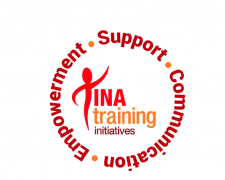We will encourage participants to identify effective strategies for enabling people to manage difficult emotions and behaviours which provoke anxiety in others.
This one day course aims to identify some of the reasons why individuals may demonstrate behaviour experienced by others as challenging and to establish effective strategies for encouraging positive behaviour and adopting a positive, proactive approach.
We will explore the advantages/disadvantages and consequences of adopting a variety of reactive strategies. Participants will be encouraged to recognise their own ways of dealing with circumstances which they experience as stressful. We will identify different stages of emotional arousal and consider what might be the most appropriate ways of offering support at different stages of a behavioural crisis.
We will describe a de-escalation routine and suggest ways of encouraging individuals to reflect on past crises. We will consider how best to support individuals to recognise different ways of responding to situations they find difficult.
Aims
- To identify behaviours experienced as challenging.
- To consider what these behaviours might be signalling.
- To develop effective communication skills.
- To empower people to support individuals in managing their own behaviour.
Learning Outcomes
- To understand the reasons individuals sometimes present behaviour that others find challenging.
- To understand the importance of positive proactive and reactive responses.
- To recognise that we all need coping strategies to help us manage stress.
- To describe the five stages of emotional arousal.
- To understand the concept of diffusion and redirection.
- To understand the effects of negative reactive strategies that have been used to 'manage behaviour'.
- To identify shared strategies for supporting individuals.
- To create and maintain an environment where people feel valued and listened to
Who is it for?
- Managers, employees, volunteers, support workers, carers – community and residential services
- Anyone who experiences the behaviour of others as challenging.
- Anyone keen to develop skills for dealing effectively with conflict and confrontation.
- People who want to understand how power, status and the freedom to make choices affect patterns of behaviour.
Feedback from participants:
‘Enjoyed course very much - very practical and at right level’
‘Very good. Nicely presented’
‘Very well put over’
‘Excellent course’
‘Very informative, enjoyed course’
‘A most enjoyable day’
‘A very fulfilling day, very much enjoyed’
‘Very well organised’
‘Very relaxed atmosphere, very knowledgeable, enjoyed course’
For further information please contact:
Tina Thordal – 07815 064710 or e-mail tina@tinatraining.co.uk
Bill Horrocks – 07929 035297 or e-mail bill@tinatraining.co.uk
